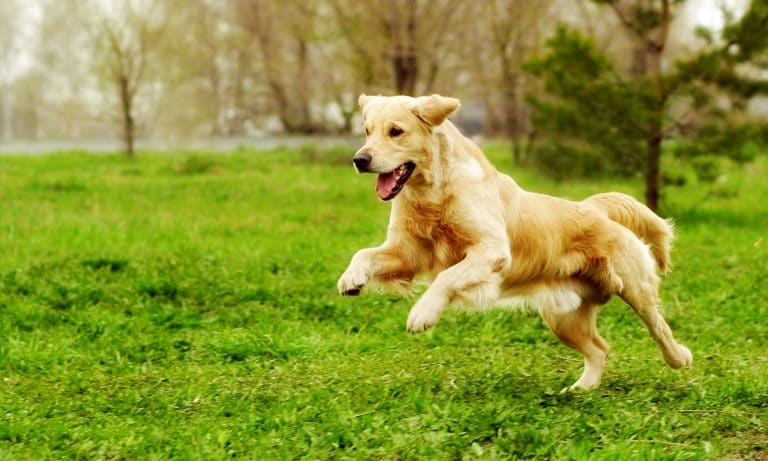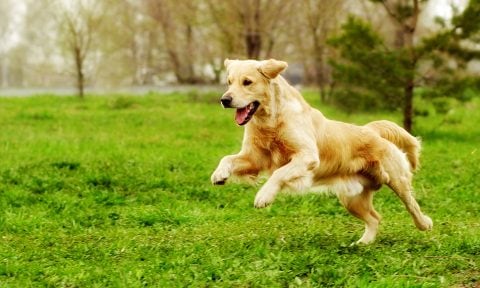Golden Retriever vs Boxer

Breed Snapshot
Best For
Golden Retrievers, known for their friendly disposition, thrive on companionship and exercise. Intelligent and adaptable, these loyal dogs make ideal family pets for those who can provide lots of love and mental stimulation.
Golden Retriever Temperament
The Golden Retriever personality is naturally outgoing and eager to please. Although individual personalities can vary, most Goldens love people and social outings, thriving in homes with lively environments. Generally, Goldens are born to mingle and see everyone as a potential new best friend. Whenever they meet someone ne...
The Golden Retriever personality is naturally outgoing and eager to please. Although individual personalities can vary, most Goldens love people and social outings, thriving in homes with lively environments.
Generally, Goldens are born to mingle and see everyone as a potential new best friend. Whenever they meet someone new, they seem to say, “Hi! I am so glad we met. Do you have a ball to throw for me now that we’re friends?”
That friendly demeanor, coupled with their moderate weight and height, make Golden Retrievers excellent dogs for families with young children. However, not all Goldens are without challenges. When bringing a Golden home, cautiously introduce them to household members, especially smaller ones like children and cats, and be sure to teach small children how to behave and interact with dogs as well.
Goldens are also intelligent; they’re quick learners and easy to train. They were and are bred to be gundogs, retrieving waterfowl with their soft mouths, a characteristic that allows them to carry delicate items without applying excessive pressure. They often serve as guide dogs, therapy dogs and search-and-rescue dogs. For optimal health, Golden Retrievers need ample mental and physical exercise.
Keep in mind, though, that even the best-trained Goldens can be mischievous. So be prepared for occasional capers and learn to laugh with your dog as they “help” you unload the laundry basket.
Golden Retriever Traits

Breed Snapshot
Best For
Energetic and playful, Boxers do well in households with active parents who can provide regular exercise and playtime and in homes that have a big yard where they can stretch their legs. Loyal and affectionate,...
Energetic and playful, Boxers do well in households with active parents who can provide regular exercise and playtime and in homes that have a big yard where they can stretch their legs. Loyal and affectionate, Boxers thrive on social interaction with their family.
Boxer Temperament
With their muscular physique and dark eyes, Boxers might seem tough and serious. But don’t be fooled! The ability to make many two- and four-legged friends is one of the Boxer’s greatest strengths. Silly pups at heart, they’re like a kid in a dog’s body, whi...
With their muscular physique and dark eyes, Boxers might seem tough and serious. But don’t be fooled! The ability to make many two- and four-legged friends is one of the Boxer’s greatest strengths. Silly pups at heart, they’re like a kid in a dog’s body, which may explain why Boxers and kids get along so well. They’ll never cease to put a smile on your face with their clown-like antics. You can often catch them sitting with their rear legs out in front of them (like people) and rolling back into a lazy dog position. They’re also prone to zoomies and stopping on a dime to dole out sloppy, wet kisses. If your dream dog is athletic and affectionate, the Boxer’s for you.
Often described as being more human than dog, Boxers are known to be quite sensitive. They’ll work 24/7 to please their loved ones, but this desire to please means they can get their feelings hurt. (Sad puppy dog eyes warning!) Originally bred to serve as guard dogs, Boxers perform brilliantly as service, assistance and therapy dogs, and in roles such as drug detection and search-and-rescue. However, some Boxers may not get along well with dogs they don’t know and of the same sex.




